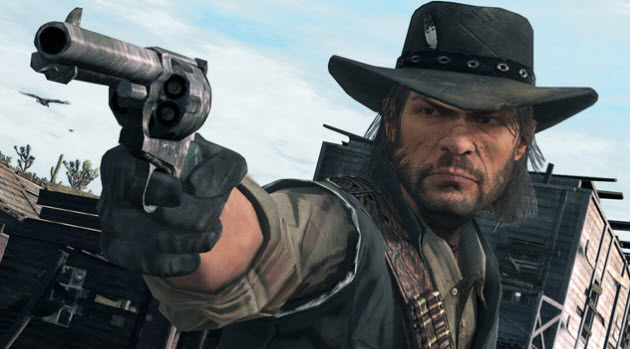 For many years,
For many years, 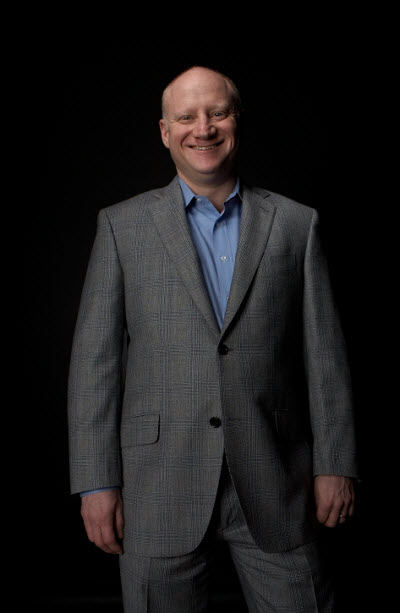 Grand Theft Auto has been a huge boon for Take-Two Interactive, selling tens of millions of copies and generating billions in revenue. But the company has always struggled to make itself profitable in the off years when it wasn’t shipping a new GTA game. It’s been a bit like a curse, although other game companies would love to have this problem. But with the successful launch of the Wild West open world game Red Dead Redemption (made by the company’s Rockstar Games division), Take-Two is finally riding high. It isn’t profitable just yet, since it is still investing heavily in very high-quality games that take a long time to make. But some of the heat is off, and Ben Feder, chief executive of New York-based Take-Two, is happy about that. We caught up with him at E3 to talk about life beyond Grand Theft Auto. Here’s a transcript of the conversation.
Grand Theft Auto has been a huge boon for Take-Two Interactive, selling tens of millions of copies and generating billions in revenue. But the company has always struggled to make itself profitable in the off years when it wasn’t shipping a new GTA game. It’s been a bit like a curse, although other game companies would love to have this problem. But with the successful launch of the Wild West open world game Red Dead Redemption (made by the company’s Rockstar Games division), Take-Two is finally riding high. It isn’t profitable just yet, since it is still investing heavily in very high-quality games that take a long time to make. But some of the heat is off, and Ben Feder, chief executive of New York-based Take-Two, is happy about that. We caught up with him at E3 to talk about life beyond Grand Theft Auto. Here’s a transcript of the conversation.
VB: How do you feel about your E3 show line-up?
BF: We are excited about it and are coming off a huge success with Red Dead Redemption. In a way, we are in this business to make hits. We put ourselves in a position where it can happen, and it’s nice when it really does. That is giving us great momentum coming into the [E3] show. Mafia II is showing really well. One of the surprises is that Nickelodeon Fit title. There is a lot of excitement at retail for that product. There’s a line around the booth to see Spec Ops: the Line.
VB: Is that line there because you have Playboy bunnies posing for pictures?
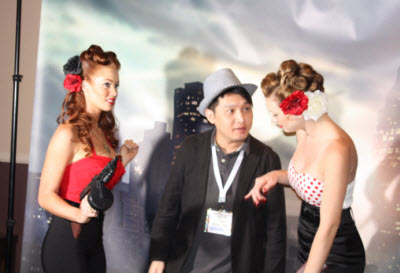 BF: There are no Playboy bunnies for Spec Ops. It’s getting a lot of positive feedback. We have our fingers crossed. We have one of the strongest line-ups this year. It’s one of the strongest we’ve had in a long time.
BF: There are no Playboy bunnies for Spec Ops. It’s getting a lot of positive feedback. We have our fingers crossed. We have one of the strongest line-ups this year. It’s one of the strongest we’ve had in a long time.
VB: How do you look back on the Red Dead Redemption decision-making process.
BF: The title was under development by the time I came to the company. It’s a big bet for sure. As it turns out, it paid off. I always look at the internal rate of return for our products. Even after the high cost of development, it’s going to contribute nicely to profits. In a way, it doesn’t benefit anybody to look back on it other than to say it paid off in spades. In the process, it has created a new franchise for the company. We set out to diversify the product line three years ago. And today, Take-Two is more diversified than at any other point in its 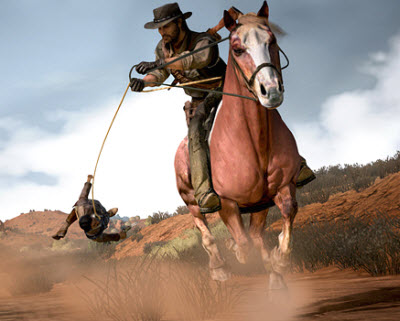 history. Having a diverse set of brands allows us to pursue growth opportunities. Certain brands lend themselves to certain growth opportunities. For instance, our NBA 2K basketball brand is leading us into China. We have a territorial growth opportunity, but it’s also an online opportunity. China is affording us the chance to create an online multiplayer game that is perfect for that territory. The Civilization brand, meanwhile, is leading us into the social network market on Facebook. Every brand has embedded in it the potential for a sequel on current platforms but also for a debut on new strategic platforms.
history. Having a diverse set of brands allows us to pursue growth opportunities. Certain brands lend themselves to certain growth opportunities. For instance, our NBA 2K basketball brand is leading us into China. We have a territorial growth opportunity, but it’s also an online opportunity. China is affording us the chance to create an online multiplayer game that is perfect for that territory. The Civilization brand, meanwhile, is leading us into the social network market on Facebook. Every brand has embedded in it the potential for a sequel on current platforms but also for a debut on new strategic platforms.
VB: You never talked about the Red Dead Redemption development budget. One analyst estimated it was $100 million. Is that how much it costs to make a game these days?
BF: There is a lot of speculation. There is no average cost to make a game. It costs a lot.
VB: When a game under development goes for so long (six years), where do you come into it and decide how much more to spend?
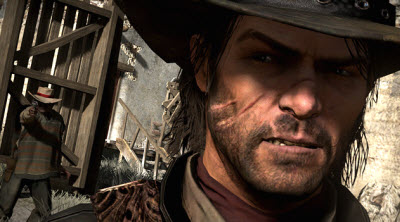 BF: We stay very close. We have a very disciplined green-lighting process at Take-Two. We review the games constantly. In a formal way and an informal way even more frequently. We make decisions about four times a year on whether to proceed or not. It’s a truth-telling process. We had a sense the title would do well. We were not expecting this kind of audience. The guys at Rockstar have an unmatched track record in creating compelling content. It was also as robust a marketing plan as I have ever seen in my career. We took a few risks with it. We had a particular point of view on it.
BF: We stay very close. We have a very disciplined green-lighting process at Take-Two. We review the games constantly. In a formal way and an informal way even more frequently. We make decisions about four times a year on whether to proceed or not. It’s a truth-telling process. We had a sense the title would do well. We were not expecting this kind of audience. The guys at Rockstar have an unmatched track record in creating compelling content. It was also as robust a marketing plan as I have ever seen in my career. We took a few risks with it. We had a particular point of view on it.
VB: Is there a particular piece of the marketing you would point to as standing out?
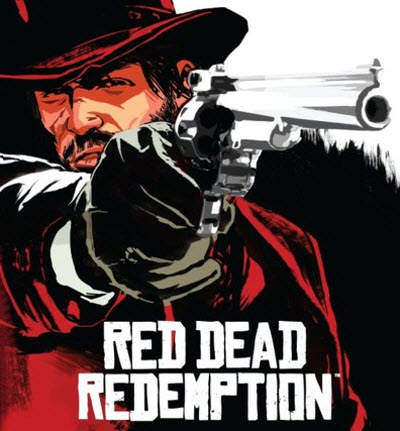 BF: There was a lot of focus on the iconic image of John Marston (the hero of the game). That image is designed to be seared into your mind.
BF: There was a lot of focus on the iconic image of John Marston (the hero of the game). That image is designed to be seared into your mind.
VB: It’s probably great that four different Western theme games didn’t come out at the same time too. It’s almost like a virgin genre again.
BF: Almost. We focused on creating anticipation for the title in a way that hasn’t been done by the company before.
VB: I guess things are as unpredictable as ever, though. BioShock 2 was a great game, but its sales trailed off faster than you folks thought.
BF: We’re in an entertainment business. The surprise factor is always going to be there. Sometimes they work for you and sometimes they work against you. Our goal is to have them work for us. More often than not. We are in the business of creating huge franchises and launching hits. Even BioShock 2 is profitable for the company and is a great success. The franchise is viable and has a lasting impact on consumers. It was ultimately successful, but not hugely successful. We are also looking forward to other hits coming this year.
VB: Does BioShock 2 also show that it matters what rival games come out at the same time and how the overall economic environment is?
BF: Your competitive set is always important. One thing we saw with Red Dead Redemption was that there wasn’t much room in the market for anything but Red Dead. It works in a good way and a bad way. We sucked the oxygen out of the room with Red Dead. We haven’t seen NPD data yet, but I suspect it will show Red Dead had pretty good market share.
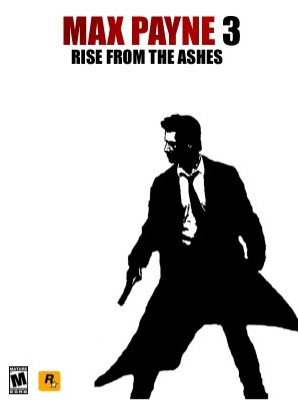 VB: And your Max Payne 3 has been delayed because it wasn’t ready to go?
VB: And your Max Payne 3 has been delayed because it wasn’t ready to go?
BF: We serve no wine before its time. If anything, Red Dead taught us that it is important to give the game the time that it needs. Rushing a game to market has never ever been a successful strategy for anybody in this business.
VB: But the investors will second guess you every day of the year?
BF: We run our business to run our business. I don’t run my business to please the analyst community. When we gave our guidance to the analyst community in March, we said our guidance was factoring into it the possibility that we might move one of our fourth quarter titles into next year. It was Max Payne 3, and that has already been baked into our numbers and the analyst numbers too, hopefully.
VB: Can you do more things because of Red Dead’s success?
BF: We are still digesting the success of Red Dead. We are focused on providing cooperative play for it, which comes out next week. It opens up avenues for us to pursue. It gives the company more flexibility. It’s a game changer for the company.
VB: We should have some kind of Grand Theft Auto discussion.
BF: We haven’t announced anything on the next GTA. We have said we will have a GTA Chinatown Wars for the iPad. We certainly understand why people ask.
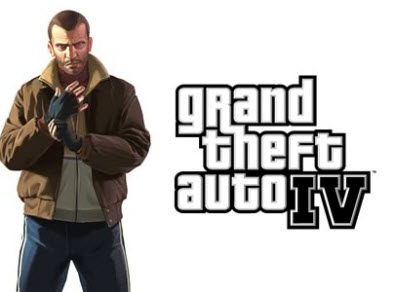 VB: What about digital online game platforms?
VB: What about digital online game platforms?
BF: Digital is a big word and it means different things to different people. Our view is that digital distribution tends to expand the market for any given media. It’s not one for one cannibalization. Quite the opposite. A good example was when pay TV or VHS came out, the movie studios acted as if it would cannibalize theatrical revenue. In fact, it led to a doubling or tripling of theatrical revenue. The reason it does that is because people either consume the product twice or it expands the audience. We think it will expand the audience. We are excited about digital distribution because it is additive to our existing partners. ultimately, distribution benefits the copyright holders and we are all about copyrights and intellectual property.
VB: How fast should you go into it?
BF: We are following the market. Last quarter, our digital revenue was 9 percent of total. A 20 percent increase over the previous quarter. We have distribution on Xbox Live and Valve’s Steam. PlayStation Network. They are all picking up. We have decided to be partners with OnLive. That improves our core business and increases the value of our library of titles, which are distributed through digital channels.
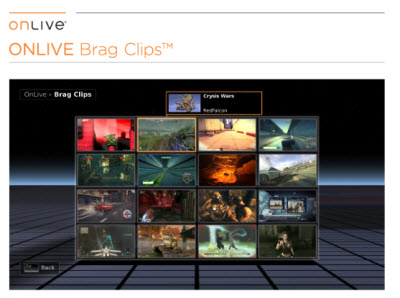 VB: Is the partnership with OnLive a sign that you will work with anybody in the digital distribution space?
VB: Is the partnership with OnLive a sign that you will work with anybody in the digital distribution space?
BF: There aren’t a lot of others. It’s not as if we were inundated by 50 companies doing digital distribution. There is OnLive. There may be a few others. We want to be supportive of online distribution channels without being silly about it. If there were 50, it would tax our resources.
VB: What did you think of the announcements at the show?
BF: It’s exciting for our partners. Sony, Microsoft and Nintendo are all very excited about their announcements. From our perspective, it is only upside. It allows our developers to be innovative in a way they couldn’t be before. On the other hand, unlike a console shift, I don’t think it is disruptive. I don’t think it is a chance to reset the market shares or anything like that. I have no doubt consumers will adopt them. I don’t know how quickly, but I have no doubt they will adopt them. We will continue to do software for our partners as we always have.
VB: Activision Blizzard had a big blow-up with Infinity Ward. From afar, how do you look at those developer-publisher fights?
BF: We like to think of ourselves as the preferred home for the most creative developers in the industry. We tend to be focused on intellectual property. We give a certain amount of freedom that a lot of other publishers are not comfortable with. We are pleased with our relationship with Rockstar, 2K, and a bunch of our creative people. We are watching it with interest, but we don’t have a horse in that particular race.
VB: Is it telling you much about the whole industry?
BF: I have gotten a lot of questions about the relationship between developers and publishers. It’s case by case. In many ways, the video game business is like the movie business was in the 1950s. That evolved in its own way, and the game business will evolve in its own way. I would not try to draw a trend line on one or two data points.
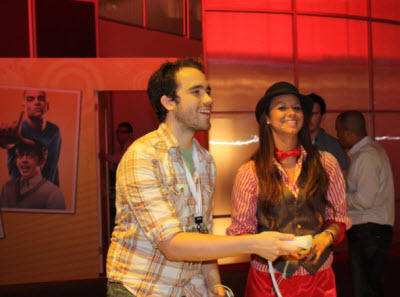 VB: It looks like EA and Activision Blizzard delight in raiding each other. They steal a team away and do a knock-off of the other guys major franchise. You guys don’t seem to be in that game.
VB: It looks like EA and Activision Blizzard delight in raiding each other. They steal a team away and do a knock-off of the other guys major franchise. You guys don’t seem to be in that game.
BF: If you look around the show floor, in certain categories, there is a certain amount of crowding. One of the things that distinguishes us is we don’t have a lot of games that other people have. Red Dead Redemption and Grand Theft Auto are highly differentiated games. It’s hard to clone them. Our brands are very strong. Call of Duty is a strong brand that is hard to unseat. But GTA is the same way. BioShock is hard to unseat. Our strategy is to have a select, diverse portfolio. Over the years, publishers have found it is hard to be all things to all audiences and be good at everything. We can cherry pick the genres and categories with incredible games. Just because everyone else has a music game or a dance game, it doesn’t mean we have to have one. It’s too time consuming and dilutive. Consumers want great experiences.
VB: The company that seems to have a diametrically opposite position is Zynga. If there is an innovative game on Facebook, they will copy it. They do it in six weeks. And usually the copy does better than the original. That drives people crazy. What if you had to adopt that kind of strategy to be big on Facebook?
BF: To the extent that we will try on Facebook, we will lead with our brands. Civilization is our lead brand there. I can’t imagine two more opposed views. The kind of games that Zynga produces and the kind that we produce are very different. They are about reach and monetization. We are about depth and production values, catering to the core gamer. I don’t know that Zynga could copy Red Dead Redemption in six weeks. It’s a different medium. They launched FrontierVille, and it is doing very well. It’s not even close to being the same game.
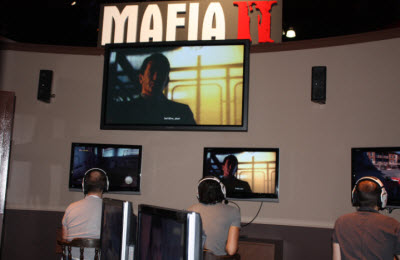 VB: I guess this makes this industry full of variety.
VB: I guess this makes this industry full of variety.
BF: In our corner of the world, there is a convergence of strategies. The winning strategy is the one we’ve always had: fewer, better games. As we look out on the show floor, what we see to the industry’s credit is a raising of the bar in terms of quality of games. There isn’t a lot of poor quality on the floor this year. That is encouraging to see. There are crowded categories, but they are good quality games.
VB: Is the open world category going through a thinning out?
BF: Open world has never been crowded because it is hard to do and expensive to do. You don’t have the equivalent of engines like Unreal on the market. You have to create the engine internally, and that creates barriers to entry. It creates real value for those who have robust engines.
VB: Are you looking at the massively multiplayer online games?
BF: We are always looking for opportunities. In a way, our announcement with Tencent in China to do 2K basketball there is a step in that direction. When we look at these opportunities, we lead with our brands.
VentureBeat's mission is to be a digital town square for technical decision-makers to gain knowledge about transformative enterprise technology and transact. Learn More
